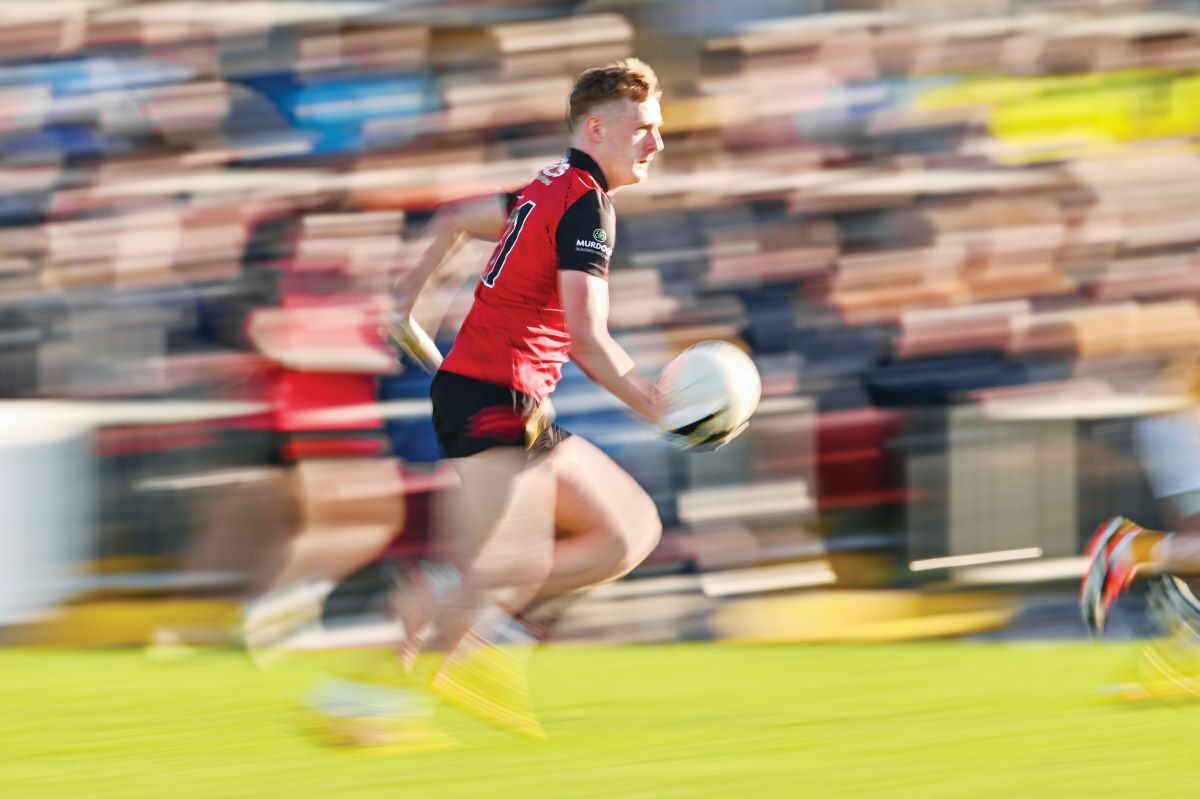THE Ulster Championship last weekend felt like an extension of the National League – poor crowds, soft pitches and windy, wintery conditions. It was a far cry from the summer sod, when the sun is shining, the straw hats are out and the football is fast and intense.
Down’s game with Antrim on Saturday was a very poor spectacle, played at an incredibly slow pace, riddled with errors and it lacked any sort of championship feel or bite.
Down have an identity under Conor Laverty, now nearly two years into the project, and the identity is the team is filled with pace and hard runners, but it’s all very predictable and over the last two games, both Westmeath and Antrim have found a very simplistic way to stifle this threat.
By sitting deep in a narrow defensive block, both Westmeath and Antrim have suffocated Down’s biggest threat, the goal-scoring opportunities they like to manufacture.
The other Achilles’ heel is that this Down side have – and this is something that has followed this team for a while – a lack of physical presence both in support of Odhran Murdock in the middle and through someone up front in attack who can win a 60-40 or 50-50 ball.
Down need to develop their game a little, they need to introduce some variety in their play, mix their attacks up with variation between kicking the ball and running it.
On Sunday, Fermanagh didn’t pose much of a resistance to Armagh who looked a full two divisions better than their opponents.
The tone was set by Armagh early, who raced into a nine-point lead, the foundation for this lead being the aggressive press on Fermanagh kick-outs that led to a period of utter dominance.
A kick-out press creates a contest, and a winning contest will give you that fire in your belly and provide a team with energy and exuberance and that’s exactly what Armagh did.
They varied their approach too. Every so often they would drop to the 45 in open play or kick-outs, let Fermanagh’s full-back line have possession, slowly setting traps, and trigger a press with a loose pass or a heavy touch.
They maintained the motto of ‘pressure creates panic’ and panic is what Fermanagh did.
Armagh had a serious flexibility in their scoring options, nine different scorers, three different goal scorers and Down will have their hands full in the semi-final.
This Saturday evening is the eagerly anticipated clash between Derry and Donegal, but its more the clash of Jim McGuinness and Mickey Harte, two proper tactical innovators of the game.
Their rivalry stretches back a long way to when Jim made Tyrone and Harte his obsession during his first spell as Donegal manager. The tide has turned however and Derry are now the top dogs in Ulster and Jim doesn’t have the same calibre of team he had back in 2012 but nevertheless, this will be a fascinating battle and from a coaching point of view.
With an analytical eye, there are so many intriguing insights to look forward to – the match-ups on both sides, who will they identify as the primary orchestrators who need tagged in each other’s team. The defensive template Jim will bring. Derry are the best team in Ireland at opening up a deep lying defensive block, a favourite strategy of Jim’s. The kick-out battle, when to press, when to drop, how to create a platform to launch attacks from your own kick-outs.
Derry topped the charts in the league final on this, sucking Dublin’s man-to-man press in deeper towards the Derry goal and then going long, scoring two goals directly from this, a tactic not used against Dublin since Jim did it with Donegal in 2014 in that famous semi-final.
Finally, the final third, what will Jim bring differently? We know what Derry bring and the flexibility in their structured attacks, along with the pace and power of their first phase attacks.
It all promises to be a battle royal and the real start of the championship.
Receive quality journalism wherever you are, on any device. Keep up to date from the comfort of your own home with a digital subscription.
Any time | Any place | Anywhere















